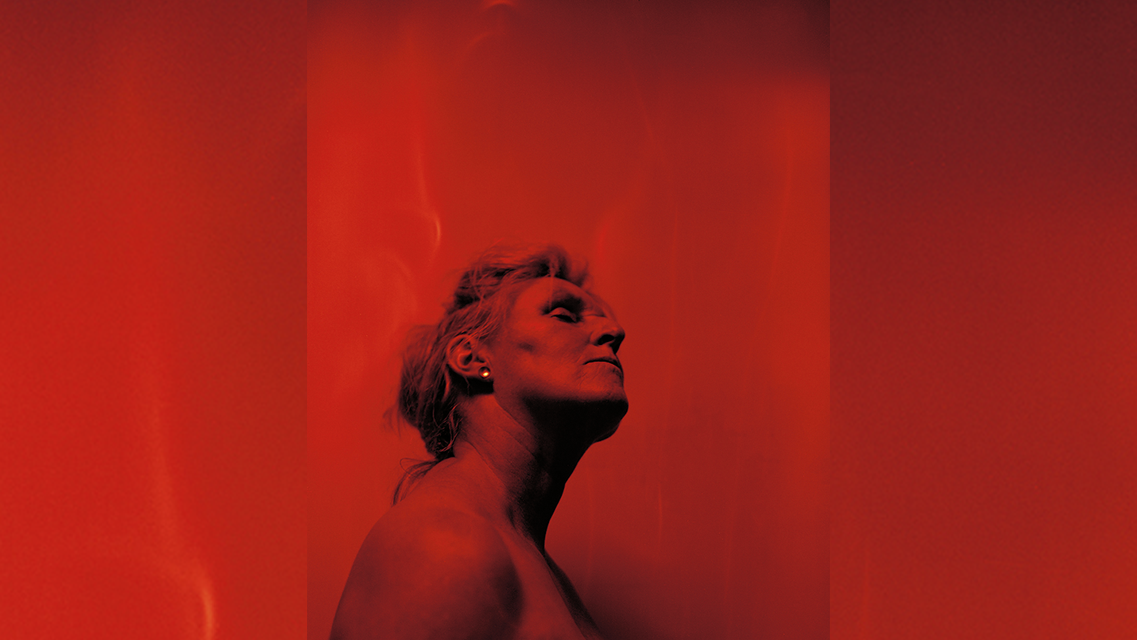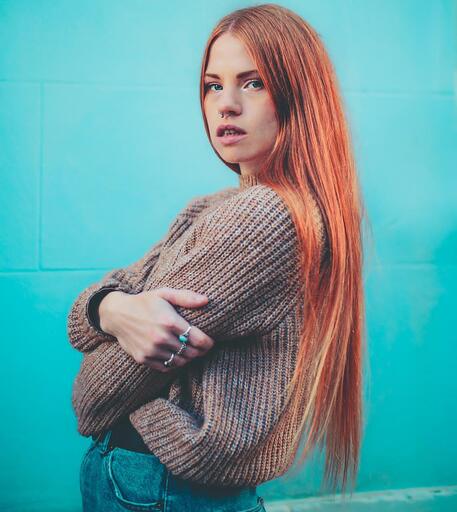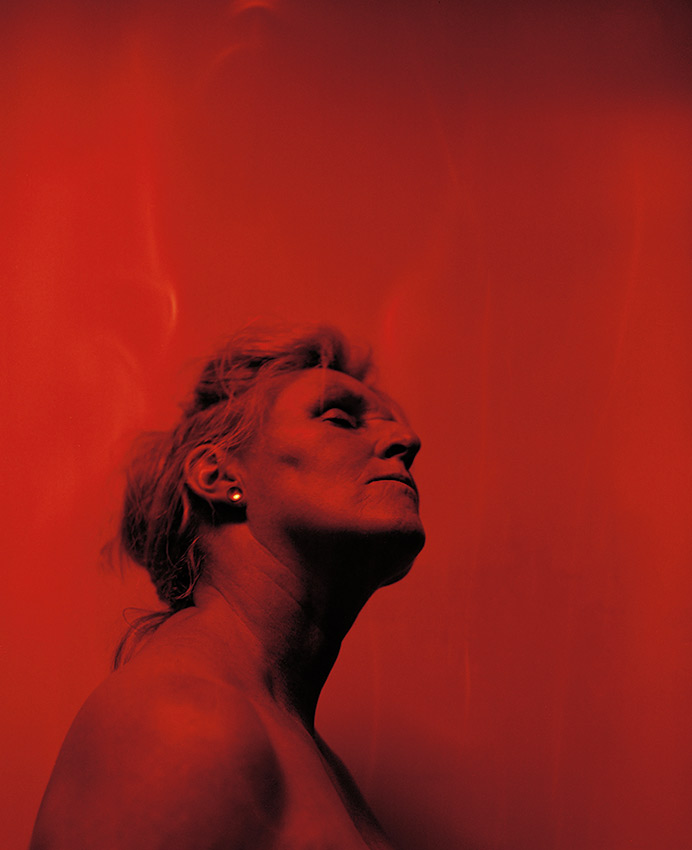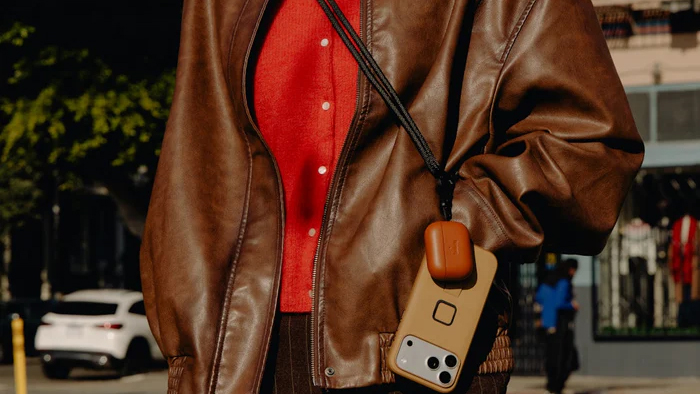Photography student wins Creative category at Sony World Photo Awards
Currently in her third year of university, Isabel's striking image of her mother won a Sony World Photography Award

The best camera deals, reviews, product advice, and unmissable photography news, direct to your inbox!
You are now subscribed
Your newsletter sign-up was successful
Third-year photography student, Isabel Salmon, had never even entered a competition before winning the Creative category at the 2022 Sony World Photo Awards. Her incredibly personal project explored how labyrinthitis and menopause have affected her mother's health, and how often invisible illnesses are overlooked.
During her time at the University of the West of England (UWE) in Bristol, England, Isabel has worked with techniques incorporating sound, text and moving images in her work as a way of exploring different topics. Although she has never won a competition, she has had her work exhibited in one of Bristol’s most prestigious art spaces, The Arnolfini – and now at Somerset House, London.
Isabel’s work tends to explore her own experiences and the experiences of those around her and by pushing the boundaries of the photography process she is able to make informed creative responses. Vulnerability and empathy are recurring themes in her work, and an awareness of people and her environment is what drives her to create such striking photos.
Despite being just 23, she has tackled some complex issues and her latest project 'Labyrinth' dives into how the networks in our bodies such as the nervous system connect and how we as people connect to others.
We caught up with Isabel to discuss invisible illnesses, how winning this award has helped her as a photographer and what she hopes to achieve after graduation.
Congratulations on winning a Sony World Photography Award! Have you ever won anything like this before?
I am currently a student at UWE in my final year and this is the first time I have won anything like this. I was thrilled to receive this award and it has given me the confidence to submit more of my work to other competitions.
How has this award helped you be more sure of yourself as a photographer?
It has encouraged me to share more of my process as well as the work I have produced so far. It is often hard during the creative process to realize what is working when a lot of it is about experimentation. It is good to know that the work is not only meaningful to me and my subject but that it also resonates with others.
The best camera deals, reviews, product advice, and unmissable photography news, direct to your inbox!
Did creating the image help you deal with better or understand what your mother is going through more?
During this project I have worked collaboratively with my mother, to ensure that the process involves co-direction of the work. During the process, I have responded to text and audio of my mother discussing the sensations in her body. This has allowed me to be more empathetic towards the condition and the work presents a personal account and a shared understanding of what she is experiencing.
What planning, preparation and research went into creating the image?
I initially thought about what I was interested in, and I recognized how difficult it is to document other people’s experiences. I began the process by having a conversation with my mother a few years ago and listening to the changes that had occurred in her body through labyrinthitis and the menopause. She began illustrating this through her own writings in a journal, ‘The Dizzy Diary’. I began researching further into the condition and joining groups on social media with individuals experiencing similar sensations.
Although this work is more about my mother and her personal experience with the condition, it was still important to consider who else had been affected by it. Further research and conversations with her, it has also suggested that the sensations could be brought on by the menopause. This is a stage in a woman's life that is overlooked and another important narrative and subject area to explore in the work. The project has begun to evolve more, looking at what we experience which is not necessarily visible to others and creating this work as not only a way of understanding my mother, but also educating myself and her on the condition and the menopause.
Have you got plans to continue the series where you perhaps explore other invisible illnesses?
It is hard to show an illness or experience which is not visible to others, therefore documenting it visually and through other media, enables the viewer to respond to the work more effectively. I want to continue the conversation with my mother and the collaboration after university. Therefore, allowing it to progress down different avenues and media. I hope that as it is commenting on wider subject areas such as the menopause, that others may draw personal narratives from the work.
What did you use to shoot the image?
I often work with different media and processes, but with this image I shot it using the medium format film camera, Mamiya RB, while experimenting with lighting.
How would you describe your photography?
I often follow a performative documentary approach as I work in response to what the individual is telling me and I work collaboratively to document their personal experiences. I am also interested in using sound, moving images and text to document my subject matter, as I believe this allows me to get closer to what I am exploring. Therefore, the outcome becomes a lot more sensitive and authentic, and it allows the viewer to be more immersed in the concept. Additionally, I want to encourage co-authorship of the work, so the subject matter's voice is embedded in it.
Have any of your lecturers or colleagues been particularly helpful or inspiring?
I have enjoyed my time at UWE, especially at the Bower Ashton campus and being surrounded by amazingly creative individuals. I have had great support from various tutors and peers this year. My tutor John House has allowed me to feel more confident in myself as an artist and encouraged me to keep curating work. I understand how lucky we are to have access to him as a tutor and I will be forever thankful to have him supporting me during my final year of university.
What do you hope to do when you graduate?
I am unsure exactly what I want to do once I leave university. However, I want to continue making work and networking with other people who are involved in the creative sector. My dream is to be part of a community that encourages access to the arts and makes them more accessible for everyone. I think it is a very important resource and outlet for society. In doing so this allows for participation between different groups of people, as well as exploring multi-disciplinary outcomes, to communicate a wide range of ideas
To view more of Isabel's work, head to her website or follow her on Instagram.
Read more:
Best film cameras
Best 35mm film, roll film and sheet film
Best medium format cameras
Best Sony cameras

Having studied Journalism and Public Relations at the University of the West of England Hannah developed a love for photography through a module on photojournalism. She specializes in Portrait, Fashion and lifestyle photography but has more recently branched out in the world of stylized product photography. Hannah spent three years working at Wex Photo Video as a Senior Sales Assistant, using her experience and knowledge of cameras to help people buy the equipment that is right for them. With eight years experience working with studio lighting, Hannah has run many successful workshops teaching people how to use different lighting setups.


